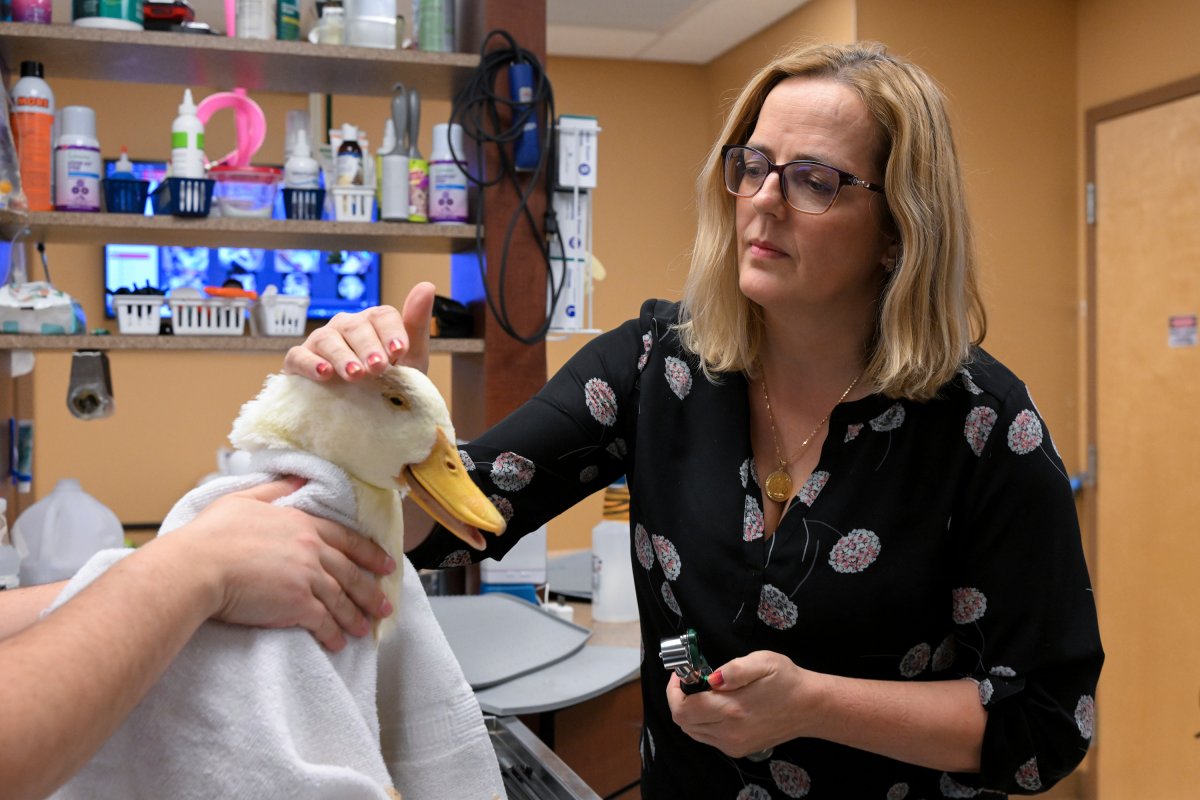A long-standing shortage of veterinarians in Saskatchewan and the rest of Canada is reaching a point of crisis, according to some experts.

Stephen Manning, the associate dean of clinical programs at the Western College of Veterinary Medicine in Saskatoon, says, “There’s been a shortage of veterinarians across Canada, including Saskatchewan, for many years.”
“We’re past the tipping point. I think the problem has become more severe and more acute in the last few years, especially through the pandemic.”
He added that a lot of people got new pets during the pandemic which has led to a large increase in demand for veterinary services. The problem, he said, is becoming more and more widespread than it was five years ago.
The Canadian Veterinary Medical Association (CYMA) says, “A severe shortage of veterinary professionals is negatively impacting the health and well-being of the veterinary workforce and places additional pressures on the level of quality care they can provide for their clients.”
In a highly competitive market for veterinary professionals worldwide, it is imperative to address these Canada-wide shortages urgently, they say on their website.
Manning says that veterinarians are burnt out and overworked.
- ‘Shock and disbelief’ after Manitoba school trustee’s Indigenous comments
- Canadian man dies during Texas Ironman event. His widow wants answers as to why
- Several baby products have been recalled by Health Canada. Here’s the list
- ‘Sciatica was gone’: hospital performs robot-assisted spinal surgery in Canadian first
“Veterinarians are working harder and harder. It’s very difficult for those veterinarians who are trying to hire associate veterinarians to work with them in their practices, both rural and urban. So their workload has increased along with the increased demand from more animals in the population.”
He added that there is also a significant shortage of veterinary technicians.
“In the rural areas, it can be very difficult to find veterinary services for some large animal producers. So that’s a significant problem and it can be very difficult in the urban centers sometimes to find an appointment for a small animal pet that doesn’t have all the significant wait time.”
Manning said that the system is becoming overwhelmed and wait times have only increased in the last few years, making access to emergency care when people need a veterinarian more difficult.
In terms of what needs to be done, Manning said that the simple answer is to train more veterinarians and more veterinary technicians.
“The five veterinary colleges in Canada right now graduate about 450 veterinarians a year. That is not enough to meet the demand. That is enough to replace those veterinarians who are retiring and leaving the profession. So it doesn’t address the shortage,” he said.
He also said that he would like to see an increase in the number of veterinarians being trained in Canada. WCVM (Western College of Veterinary Medicine) has increased enrollment in their classes from 78 to 88.
He added that another avenue to add to the force is through immigration. “There are a large number of internationally trained veterinarians who have to go through a rigorous process of examinations in order to get qualified to have a license here.”
Manning said that there is currently a waiting list for that process and it is available only at WCVM in Canada.
CVMA has started the Veterinary Workforce Project that is meant to support veterinary stakeholders and deliver solutions to the shortages.
They are working with IRCC to deliver four webinars in February and March 2023 that will give information on the various immigration pathways that can be used when recruiting internationally trained Veterinarians. These free sessions will be one hour in length.
Once dates and times have been finalized, people can register through the CVMA events page.





Comments